John Hurrell – 8 May, 2012
The long interviews with Frankovich and Maw show two very different personalities and are very interesting when you compare what they say with what you see in their work. Maw is extremely entertaining when describing her competitive instincts towards Francis Upritchard, and why she persuaded her to sit for the portrait she exhibited in Artspace: part fangirl; part touching the hem of her garment; part jealousy.
2
Richard Maloy, Jeena Shin, Koki Tanaka, Meredith Johnson, Jim Allen, Campbell Patterson, Dave, Alicia Frankovich, Cao Fei, Liz Maw
Assorted articles and interviews
Editor: Emma Bugden
104 pp, b/w and colour images
Clouds/Artspace 2012
This anthology of articles and documentary images is a tasty smorgasbord, a carefully picked sampler of choice items demonstrating Emma Bugden’s interests as director running the programme at Artspace (October 2008 - April 2011). And as her enthusiasms were catholic it is no surprise that this publication is wide in its range.
2 comes after Volume 1, put out in August 2008 as a record of Brian Butler’s term as director. One useful coincidence is that 2 appears while Made Active, Natasha Conland’s Chartwell exhibition, is on at Auckland Art Gallery. Jim Allen, Alicia Frankovich and Campbell Patterson feature in both. Most of the discussions in 2 are really good.
In some ways this publication is an extension of Natural Selection with its emphasis on articles that draw out the motivations and intellectual contexts that propel artists - the design/publishing company Clouds is linked to both. The long interviews with Frankovich and Maw show two very different personalities and are very interesting when you compare what they say with what you see in their work. Maw is extremely entertaining when describing her competitive instincts towards Francis Upritchard, and why she persuaded her to sit for the portrait she exhibited in Artspace: part fangirl; part touching the hem of her garment; part jealousy.
In her article Alicia Frankovich converses with Ellen Blumenstein about (amongst other things) Merleau Ponty’s placing of thought firmly in the experiencing body, one that perceives as well as being perceived. Frankovich is interested in a constant exchange between viewer and work, reducing the gap between the performance (as an observed activity) and its affect on the viewer’s body.
Jim and Mary Barr’s writing on Campbell Patterson’s yearly videos of him lifting his mother - carrying her in his arms for as long as he can - discusses them as an ongoing narrative (starting in 2006) while pinpointing some of the differences between works of certain years. One of many video projects, and filmed in domestic settings against the same curtain backdrop, it is elucidated by the Barrs in terms of Patterson’s presenting a private ritual in public, its vulnerability and risks.
Probably the most enlightening piece in this book is Janine Randerson’s discussion of Jeena Shin’s Artspace Stairwell Project. It is packed with information about the design of the old Newton Post Office tower shaft, the different stages of Shin’s project, and the various additive or subtractive treatments of the enclosing walls. Shin’s intense studying of the light from the two narrow windows, and use of delicate grey tones and small increments of gloss is elaborated on - as is her use of a 1:20 cardboard model.
Another highlight is the set of ten pages containing photographs and descriptions of projects by Koki Tanaka, who installed an installation in the large Artspace gallery. His videos are like a gentle variation of Fluxus, delighting in repeatable rudimentary actions that exploit sudden movement and noise.
This is a very nicely put together, lively publication. My only reservation is the lack of elaborative discussion for the digital images of Chinese artist Cao Fei, here illustrating online works, a video and a theatre production. More needs to be said about her digital manipulations, especially theatre work not hinted at in her exhibition, but which with acting singers (seen in the photos here) looks engrossing.
The other disappointment is the texts on Jim Allen’s recreation of Contact from the seventies, with its three distinctively separate performance themes. Tahi Moore is an experienced writer but his article is not particularly helpful - seems more about himself and film/comic maker Alexandro Jodorowski than Jim Allen. It is alongside an article by Guy von Sturmer, originally published in Allen and Curnow’s New Art: Some recent New Zealand sculpture and post-object art - from 1976. This reprint, when many writers attended the new re-enactments, seems ostrichlike. The new permutations generated a lot of verbal debate but not much got into print; so an opportunity missed.
Despite my quibbles, a valuable, elegant and informative book.
John Hurrell
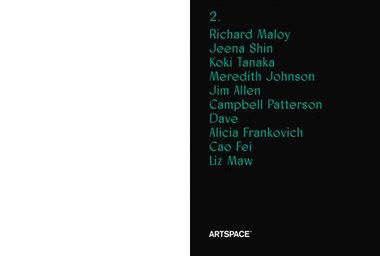
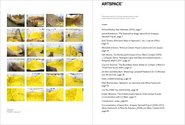
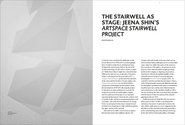
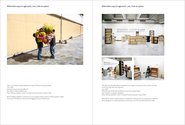
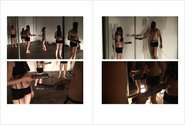
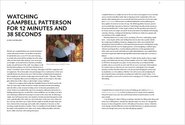
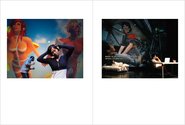
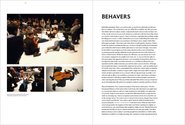
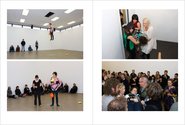
 Advertising in this column
Advertising in this column Two Rooms presents a program of residencies and projects
Two Rooms presents a program of residencies and projects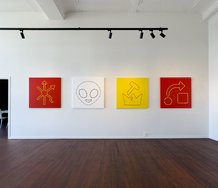
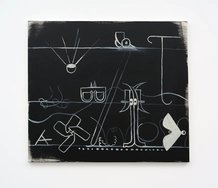
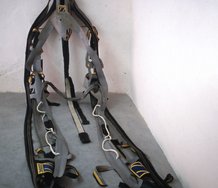
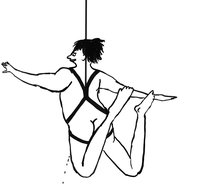
This Discussion has 0 comments.
Comment
Participate
Register to Participate.
Sign in
Sign in to an existing account.